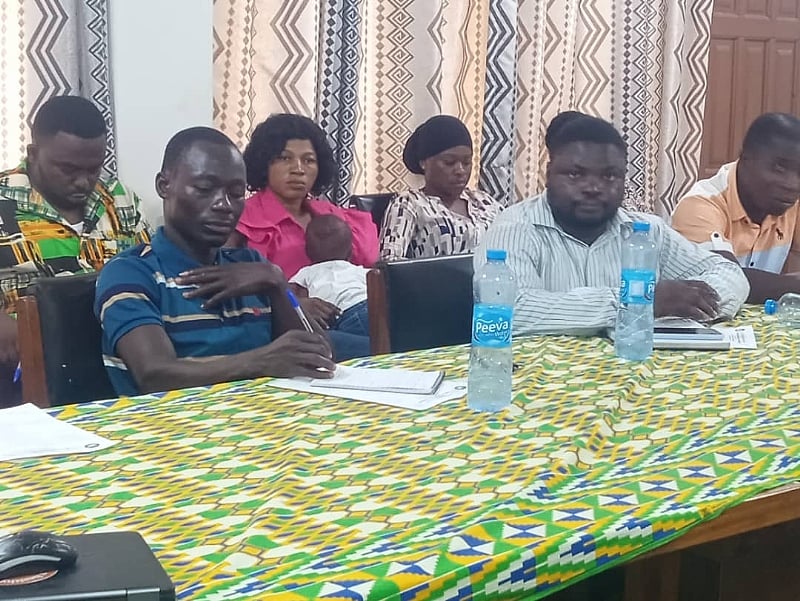Without urgent collaborative efforts and a shift in human behavior towards the environment, Ghana may soon face a clean water crisis.
This stark warning came from Dr. Justice Aduko, Project Manager for Blue Deal Ghana under the White Volta Basin Secretariat of the Water Resources Commission, during a sensitization workshop organized by Blue Deal Ghana for the Gambaga-Sub-Basin Committee.
Speaking on the matter, Dr. Aduko referenced scientific studies that indicate a potential shortage of clean water by 2030 if current trends continue.
“Our water bodies are under serious threat from pollution, illegal mining, poor waste disposal and climate change,” he stressed. “The most alarming is illegal mining. It uses water extensively and contaminates it with dangerous chemicals, making it unsafe for use.”
He explained that the Blue Deal Project, supported by the Dutch government, is designed to build the capacity of local stakeholders in water resource management as a way to combat the looming global water crisis.
“Our aim is to ensure that 20 million people globally gain access to clean, sufficient, and safe water,” Dr. Aduko stated. “In Ghana, the project is implemented in partnership with the Water Resources Commission, focusing on the White Volta and Lower Volta Basins.”
Through this collaboration, Integrated Water Resources Management (IWRM) strategies are being developed, targeting key areas such as drinking water, sanitation, irrigation, reforestation, and disaster risk reduction.
The project places strong emphasis on improving governance, enhancing organizational structures, and knowledge transfer concerning water quality, quantity, and safety.
The workshop brought together participants from various sectors and districts. They were trained on conflict resolution, trust-building, decision-making, gender dynamics, and effective communication—all vital for coordinated and sustainable water management.
Sabastein Salia Yiah, a participating engineer, described the workshop as an eye-opener. “It taught me that we need to first educate ourselves before we can educate others on how to protect our water bodies,” he said. “Every one of us has a responsibility in ensuring our water resources are safe, especially in the face of climate change.”
Dr. Aduko concluded by emphasizing Blue Deal Ghana’s ongoing commitment to equipping stakeholders, including community opinion leaders, to implement strategies like tree planting, stopping improper waste disposal, and combating illegal mining at water sources.
“Water is life,” he said, “and without it, development cannot be sustained. We must act now—together.”


